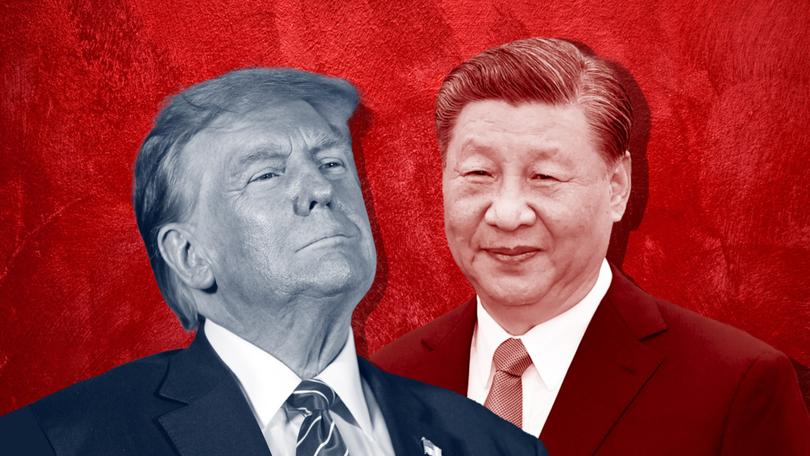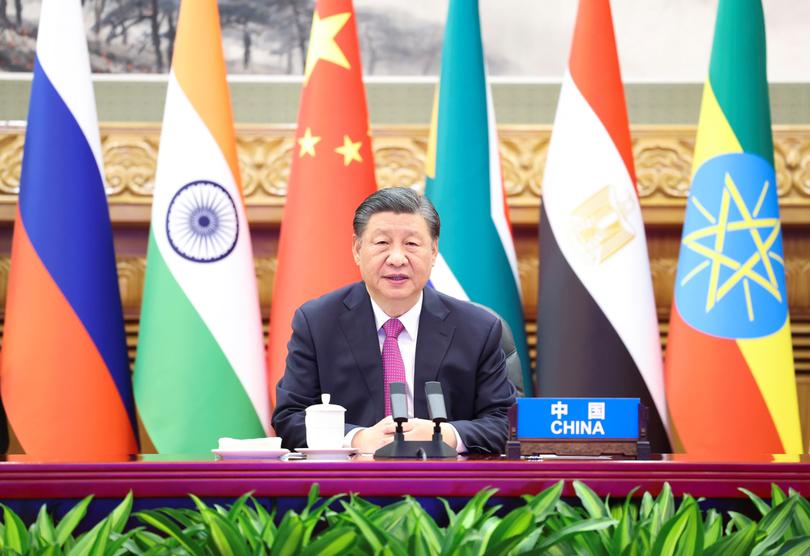SIMON BIRMINGHAM: Donald Trump is a proud disruptor, but we’ve worked with him before and can do so again
SIMON BIRMINGHAM: President Trump is proudly a disrupter, who is prone to pursuing less conventional policies and making bolder pronouncements. But that is not a reason to catastrophise.

The great power of the United States has stood tall, from the ashes of World War II.
However, as US Secretary of State Antony Blinken recently said, “geopolitical competition is underway to shape a new era in international affairs. The world we face is more competitive. It’s more complex and more combustible”.
Yes, the US remains a great power, and the US will continue to be so.
Sign up to The Nightly's newsletters.
Get the first look at the digital newspaper, curated daily stories and breaking headlines delivered to your inbox.
By continuing you agree to our Terms and Privacy Policy.China too is a great power and will continue to be so.
How Australia navigates these power relationships is more important than ever.President Trump is proudly a disrupter, who is prone to pursuing less conventional policies and making bolder pronouncements.
But that is not a reason to catastrophise. The Turnbull and Morrison governments demonstrated how to work with the Trump administration.
There are opportunities in the second Trump administration.
Senior administration officials, including the incoming secretary of state Marco Rubio and national security adviser Michael Waltz, have been open about the significance of our region.
Incoming vice president JD Vance has spoken of a pivot, and stated that Asia is “going to be the future of American foreign policy for the next 40 years”.
That is a future that Australia must help to shape, and can do so even more effectively alongside regional partners like India and Japan.
It is a future in which AUKUS must play a strong role.
The case to make to President Trump in support of AUKUS submarines is clear.
No other US ally in this region is investing to expand their defence capability like Australia is.
No other US ally is investing directly in US defence industrial capabilities like Australia is.
And no other US ally is investing to build defence industrial capabilities that complement those of the US like Australia is.
We do so to deter conflict and secure the stability that underpins economic well-being.
Our budgets must match our plans, and our delivery must match our ambitions.
We must also move quickly to give Pillar II plans greater specificity — real plans and investments that demonstrate their worth.
Prime Minister Anthony Albanese should be making these points to President Trump in person, at the earliest opportunity.
In this changed and contested world, Australia must collaborate actively and thoughtfully with traditional powers and partners, along with new or emerging powers and partners.
We must always do so true to our values, principles and interests.
We must do so confident in our abilities and resilience.
Recently, Australia faced an unwarranted attempt at economic coercion, via Chinese Government trade sanctions.

As a country, in the face of unacceptable demands, Australia did not compromise on policies or interests but demonstrated resolve. Our businesses sought diversification.
Now, with the overwhelming removal of those sanctions, Australia should celebrate the resilience shown by our economy, businesses and people.
Australia did not yield to pressure, and this strength should give us the resolve to stand by our values and national interest at all times.
Our approach to China should be both principled and predictable.
Whether it is on questions of global or regional security, free trade, human rights, or shared challenges like climate change, they should be in no doubt about what we believe and what we would encourage of them.
With China, we seek stable relations, with positive engagement in areas of collaboration.
The trade between our nations is mutually beneficial to each and, in strengthening both of our economies, it is good for our region and the world.
It was harmful to some in each of our countries for China to interrupt that trade in breach of FTA undertakings we had made to one another.
We welcome the restoration of trade consistent with these agreements and, as Peter Dutton has said, the Coalition would wish to see that trade relationship grow further.
Given China’s standing as a great power in our region and the world, it is natural that we have expectations of how China should conduct itself in matters that impact our region and the broader world.
Of great powers, much should be expected.
Ideally, China would respect international rulings on maritime boundaries and its forces would not engage in acts of aggression or actions that risk miscalculation.
Ideally, China would use its influence and relations with countries like Russia, Iran and North Korea to stem the rise in conflict, not enable it.
Ideally, China’s systems would operate with integrity and transparency, whether in matters of cyber security, or market competitiveness.
Australia’s position on issues like these should be of no surprise.
As China continues its growth, including the rapid growth of its nuclear-armed military capabilities, it becomes more important than ever that this great power act with great responsibility.
Over the last year, we have welcomed China’s foreign minister Wang Yi and Premier Li Qiang to Australia.
The Coalition has been pleased to have meetings with both, and I again thank China’s representatives for this courtesy.
They have been both friendly and frank exchanges, addressing topics of shared ambition, along with matters of great concern.
We welcome China’s decision to restore ministerial-level dialogue and its engagement with our democratic system. It was counterproductive of them to have chosen to cease it.
Our ambition is to see that dialogue continue — and strengthen — consistent with the Comprehensive Strategic Partnership signed by the Coalition government in 2014.
The ambitions of the CSP should lay the basis for our cooperation in many fields that reach beyond the strength of our trading relationship.
Stemming the flow of drugs across our region, cooperatively tackling regional health threats, and working together to address the challenges of climate change are just some of the areas where we can do more together.
The world is always changing but the current trajectory of global conflict could thwart ambitions for cooperation.
There is no doubt the world today presents vastly different opportunities and threats.
We should neither exaggerate or overreact to those changes, nor dismiss the risks they pose.
Our responsibility is to make the best of the situation we face, and to shape the future as best we can.
